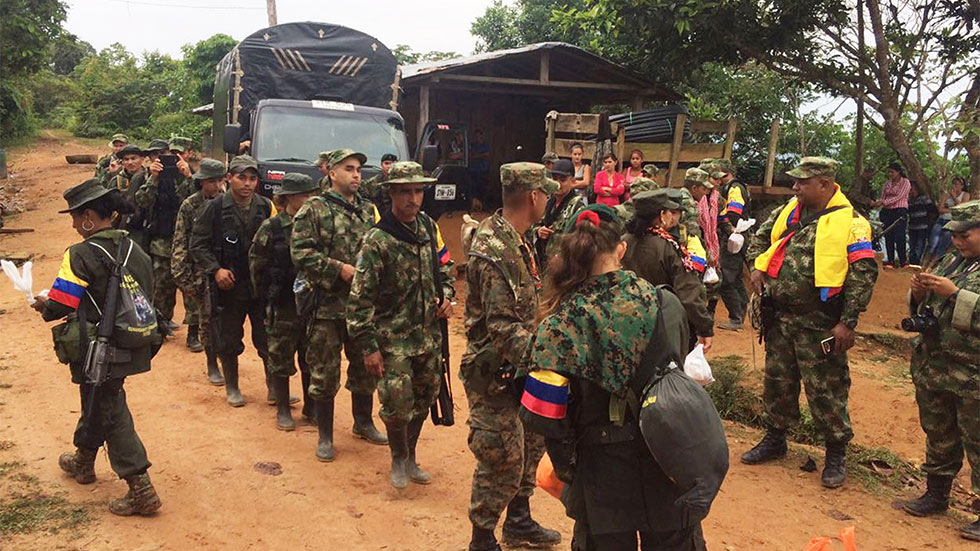Colombia’s Marxist-inspired FARC rebels look set to miss the 180-day disarmament deadline of May 30, with guerrilla representatives indicating that the process could take another two months, reported El Colombiano newspaper.
Under the terms of the peace deal signed with the government last November, the rebels were due to have surrendered their weapons to international overseers by Tuesday but after a series of delays mainly caused by state inefficiency, that now looks unlikely.
FARC demobilization delayed as Colombia govt fails to provide basic infrastructure
FARC leader Jesus Santrich on Friday claimed that the process may take another two months.
“If there is good will on the part of the government I think (the FARC’s laying down of arms) can be done in two months because we have the willingness, all the weapons are registered,” said Santrich.
The disarmament process has been littered with problems with the several delays in the construction of 26 temporary camps to house 7,500 troops coupled with the failure of the government to provide suitable containers for storing weapons.
The delays in the process are “not unusual” according to the special representative of the UN mission in Colombia, Jean Arnault.
Arnault said on Friday that sometimes a peace negotiation is viewed “more with optimism than with what is achievable.”
Speaking about the inevitable extension of the disarmament period, Arnault said that “this rescheduling is habitual because the implementation always presents difficulties that are not anticipated.”
Could the demobilization of Colombia’s FARC rebels be more chaotic?
Colombia’s president, Juan Manuel Santos on his part claimed that such delays must be considered in terms of the bigger picture of establishing a lasting peace in the country.
A couple of months after 52 years of war is nothing. There are logistical problems – you know how difficult it is? And a delay of two months or three months is nothing compared to what the benefits of peace are going to bring all these people in Colombia.
President Juan Manuel Santos
While the sentiments of Santos sound good in theory, the practicalities of the disarmament process must not be ignored.
The guerrillas have already handed over most of their rifles and guns but tons of heavy weapons, ammunition and explosives remain buried in the jungle in more that 900 sites, reported NPR.
Further delays in the disarmament process may present the opportunity for dissident former FARC members to get hold of some of the weapons.
All the while, human rights activists and community leaders are being slaughtered by the dozen as paramilitary groups move in to previously FARC-controlled territory.
Colombia’s government and the international observers of the process must ensure that it is escalated so that progress can be made with the wider implementation of the terms of the peace deal.
Colombia’s peace deals in depth: End of Conflict
The FARC’s 180-day demobilization and disarmament process is part of a major, 10-year national peace process that seeks to end more than 52 years of violence that has left more than 8 million victims.
While the guerrilla group transforms to become a Marxist political party, the government is set to embark on a series of political and rural reforms aimed at removing what are considered the main causes of the conflict, rural inequality and political exclusion.
Meanwhile, a transitional justice system for both guerrillas and members of the military is put in place to seek truth and justice over the mass victimization of Colombians.
Apart from the 16,600 FARC members, some 24,400 (former) state officials and 12,500 civilians who are either convicted or formally charged with war crimes will appear before this system.


